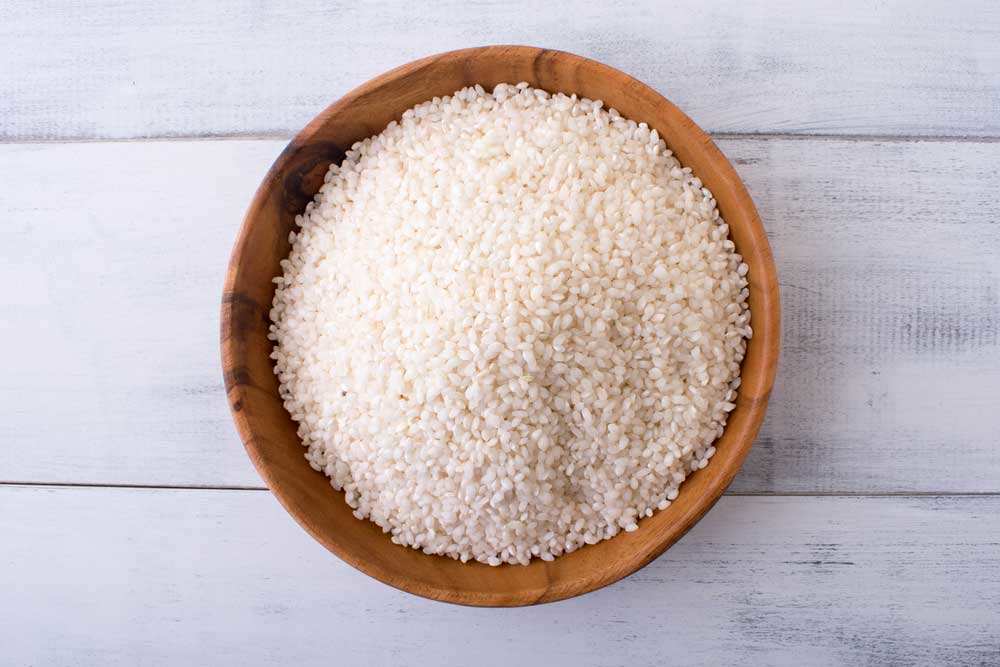
For a long time, people thought that eating fruits and vegetables and supplementing dietary fiber could prevent colorectal cancer (colon cancer).
But did you know? Eating whole grains may be more effective in preventing colorectal cancer than eating fruits or vegetables.
There Are 2 Types of Fiber, Both of Which Can Help Prevent Colorectal Cancer
Compared to other cancers, colorectal cancer is very common. In 2020, colorectal cancer was the third leading cause of new cancer cases and the second leading cause of cancer deaths.
Diet is a major cancer-causing factor. For instance, eating too few fruits or vegetables, foods high in oil and/or calories, red meat and processed meat, and alcoholic beverages can all contribute to the cause of cancer. Poor dietary habits have a 30 to 50 percent impact on the incidence of colorectal cancer worldwide. Among them, too little dietary fiber intake, such as less than 10 grams a day, can increase the risk of colorectal cancer by 18 percent.
Dietary fiber is divided into insoluble fiber and water-soluble fiber, which have different functions. Insoluble fiber can increase the volume of stool, combine with carcinogens and toxins that are eaten or produced after digestion, shorten the time that stool stays in the intestines, and reduce the contact between carcinogens and the intestinal wall.
Water-soluble fiber can be fermented and degraded by intestinal bacteria into short-chain fatty acids (SCFA) such as butyrate, propionate, and acetate. Short-chain fatty acids promote immunity, prevent inflammatory diseases, and enhance intestinal barrier function. Among them, butyrate has anti-tumor and anti-inflammatory properties and can be used as an energy source for intestinal epithelial (lining) cells.
So, which kind of fiber is more effective at preventing colorectal cancer? A meta-analysis in 2021 found that both types of fiber are beneficial in the prevention of colorectal cancer, and they provide almost equal protection.
In fact, most whole foods contains both types of dietary fiber, only in varying proportions. Therefore, the consumption of vegetables, fruits, whole grains, legumes, and nuts can provide these two intestinal protective nutrients.
Grain Fiber and Colon Cancer Prevention
There are so many foods containing fiber, so which one is the most effective in preventing colon cancer? A large study by the National Cancer Institute found that whole grains and grain fiber are most effective in preventing colorectal cancer, especially cancer in the last section of the colon, the rectum.
The study, published in 2020 in The American Journal of Clinical Nutrition, showed that people with the highest intake of whole grains had a 16 percent lower risk of colorectal cancer compared to those who ate the least amount of whole grains.
Furthermore, whole grain intake was associated with the prevention of colorectal cancer at all cancer sites (e.g., proximal colon, distal colon, and rectum). In particular, the risk of rectal cancer was reduced by 24 percent. The fiber in grains also helps reduce the risk of colorectal cancer by 11 percent, and it is effective in preventing cancers of the distal colon and rectum.
The British Medical Journal published a meta-analysis of dietary fiber from vegetables, fruits, legumes, and other foods. The study found that among all foods, the intake of whole grains had the clearest association with colorectal cancer risk. In particular, consuming three servings of whole grains (90 g) per day can reduce the risk of colorectal cancer by around 20 percent. In addition, a daily intake of 10 grams of total dietary fiber and grain fiber is also beneficial in the prevention of colorectal cancer.
Why does eating whole grains have significant benefits for colon cancer prevention? Researchers at the National Cancer Institute believe that whole grains contain bran, germ, and endosperm, which retain complete soluble and insoluble fiber. In addition, they contain a large number of other nutrients, such as vitamin B, minerals, phenols, antioxidants, and phytoestrogens, all of which can help prevent colon cancer.
Whole grains include brown rice, millet, corn, oats, buckwheat, barley, wheat, quinoa, rye, and sorghum.
The Ratio of Vegetables
In fact, in the traditional Oriental diet, there is the concept of health maintenance with grains as staples and vegetables as supplements. However, people today eat a lot of vegetables and fruits, which are beneficial, and pay less and less attention to grains.
According to his many years of clinical experience, Dr. Ting-Ming Huang, attending physician of the Division of Colorectal Surgery at Hanming Christian Hospital in Taiwan, said a diet of grains with vegetables is very beneficial in the prevention of colorectal cancer.
He’s always asked by his patients, “I’ve been eating a lot of vegetables, but how come I’ve still developed colon cancer?”
In fact, there are two other problems with overeating vegetables and fruits.
- Eat ugly vegetables
Huang pointed out that people often enjoy selecting good-looking fruits and vegetables when shopping for groceries. However, the better looking the agricultural products are, the more pesticides they contain. And if they have not been thoroughly cleaned, people will ingest these toxins.
- Don’t eat so many vegetables that you burden your gut
Eating too many vegetables, meaning excessive intake of insoluble fiber, will also increase the burden on the intestines, so that the intestines will become overworked. Consuming too much insoluble fiber will increase the amount of stool in the intestines, which can easily cause constipation, one of the risk factors for colon cancer.
Types of Rice
When eating rice as a staple food, most people eat white rice with gluten and germ removed, as it has a better taste. This ends up reducing its nutritional benefit.
Brown rice, which retains these parts, is harder. But you can compromise and mix your brain rice with white rice.
However, for people with poor gastrointestinal digestion, it is recommended to use white rice as the staple food. White rice is easy to digest and also contains a certain amount of micronutrients and fiber.
According to Huang, in addition to starch, rice also contains soluble fiber, which can help with bowel movements. “Eating rice can lead to smooth bowel movements, and the intestines will become even healthier.”
Eating grains with vegetables is also in line with the principles of traditional Chinese medicine’s health preservation regimen. As the Inner Canon of the Yellow Emperor reads, “The five grains act as nourishment; the five fruits serve to augment; the five domestic animals provide additional benefits; and the five vegetables complement the nourishment.”
Eating grains and cereals can nourish the body, help strengthen the spleen and stomach, enhance the yang energy, and allow food to be fully converted into energy. According to Dr. Jonathan Liu, a professor of traditional Chinese medicine at a Canadian public college, traditional Chinese medicine believes that the fundamental problem of colon cancer is the lack of yang energy.
Liu explained that 93 percent of colorectal cancer patients are over the age of 45, at the turning point in life when the body’s yang energy goes from prosperity to decline. A poor diet will cause internal disorders in the body and also harm the yang energy. On the contrary, a balanced diet, including a normal intake of grains, can protect the yang energy better and give the body stronger immunity against cancers.
Important Notice: This article was originally published at www.theepochtimes.com bwhere all credits are due.
Disclaimer
The watching, interacting, and participation of any kind with anything on this page does not constitute or initiate a doctor-patient relationship with Dr. Farrah™. None of the statements here have been evaluated by the Food and Drug Administration (FDA). The products of Dr. Farrah™ are not intended to diagnose, treat, cure, or prevent any disease. The information being provided should only be considered for education and entertainment purposes only. If you feel that anything you see or hear may be of value to you on this page or on any other medium of any kind associated with, showing, or quoting anything relating to Dr. Farrah™ in any way at any time, you are encouraged to and agree to consult with a licensed healthcare professional in your area to discuss it. If you feel that you’re having a healthcare emergency, seek medical attention immediately. The views expressed here are simply either the views and opinions of Dr. Farrah™ or others appearing and are protected under the first amendment.
Dr. Farrah™ is a highly experienced Licensed Medical Doctor certified in evidence-based clinical nutrition, not some enthusiast, formulator, or medium promoting the wild and unrestrained use of nutrition products for health issues without clinical experience and scientific evidence of therapeutic benefit. Dr. Farrah™ has personally and keenly studied everything she recommends, and more importantly, she’s closely observed the reactions and results in a clinical setting countless times over the course of her career involving the treatment of over 150,000 patients.
Dr. Farrah™ promotes evidence-based natural approaches to health, which means integrating her individual scientific and clinical expertise with the best available external clinical evidence from systematic research. By individual clinical expertise, I refer to the proficiency and judgment that individual clinicians acquire through clinical experience and clinical practice.
Dr. Farrah™ does not make any representation or warranties with respect to the accuracy, applicability, fitness, or completeness of any multimedia content provided. Dr. Farrah™ does not warrant the performance, effectiveness, or applicability of any sites listed, linked, or referenced to, in, or by any multimedia content.
To be clear, the multimedia content is not intended to be a substitute for professional medical advice, diagnosis, or treatment. Always seek the advice of your physician or other qualified health providers with any questions you may have regarding a medical condition. Never disregard professional medical advice or delay in seeking it because of something you have read or seen in any website, video, image, or media of any kind. Dr. Farrah™ hereby disclaims any and all liability to any party for any direct, indirect, implied, punitive, special, incidental, or other consequential damages arising directly or indirectly from any use of the content, which is provided as is, and without warranties.








